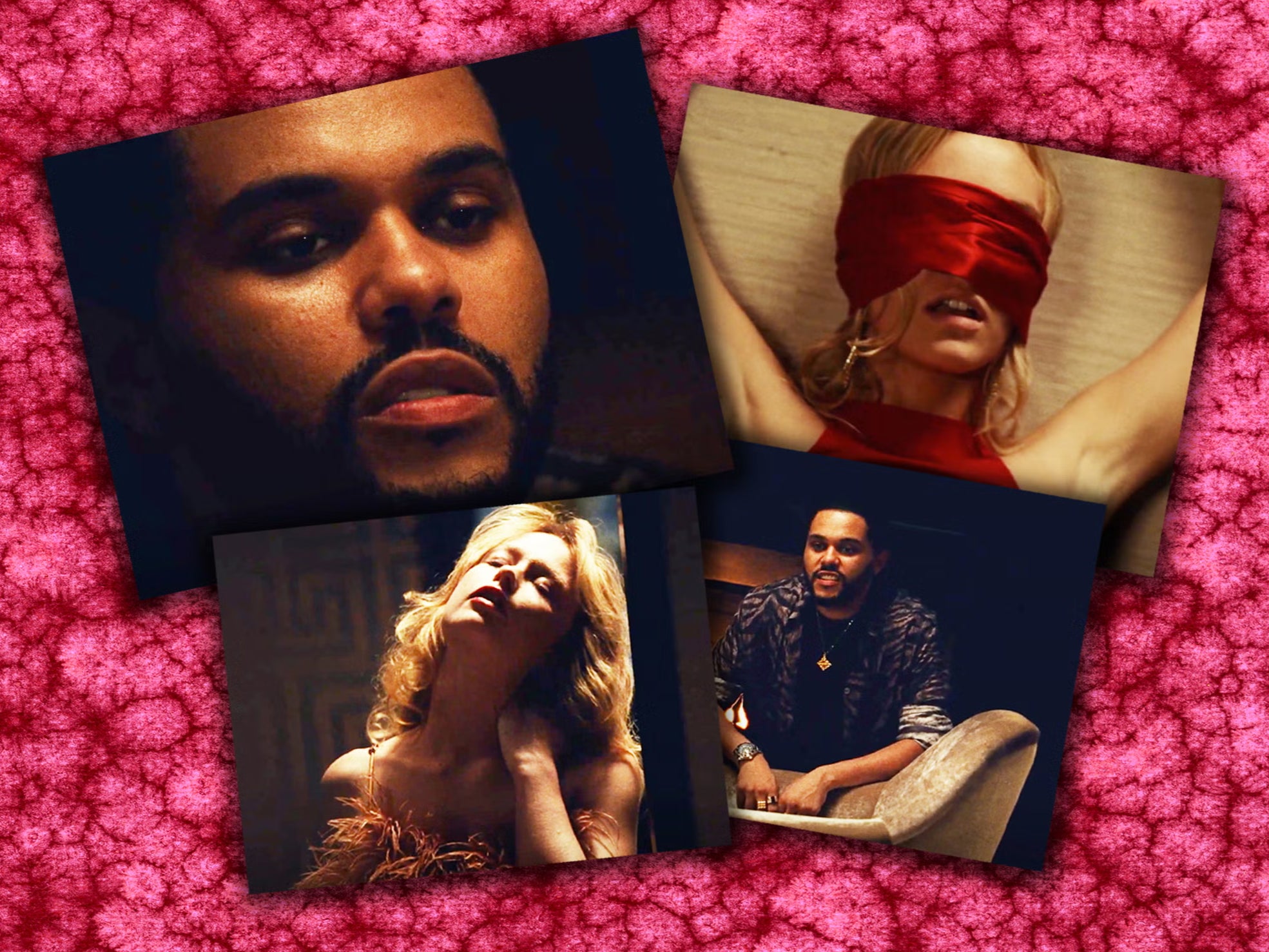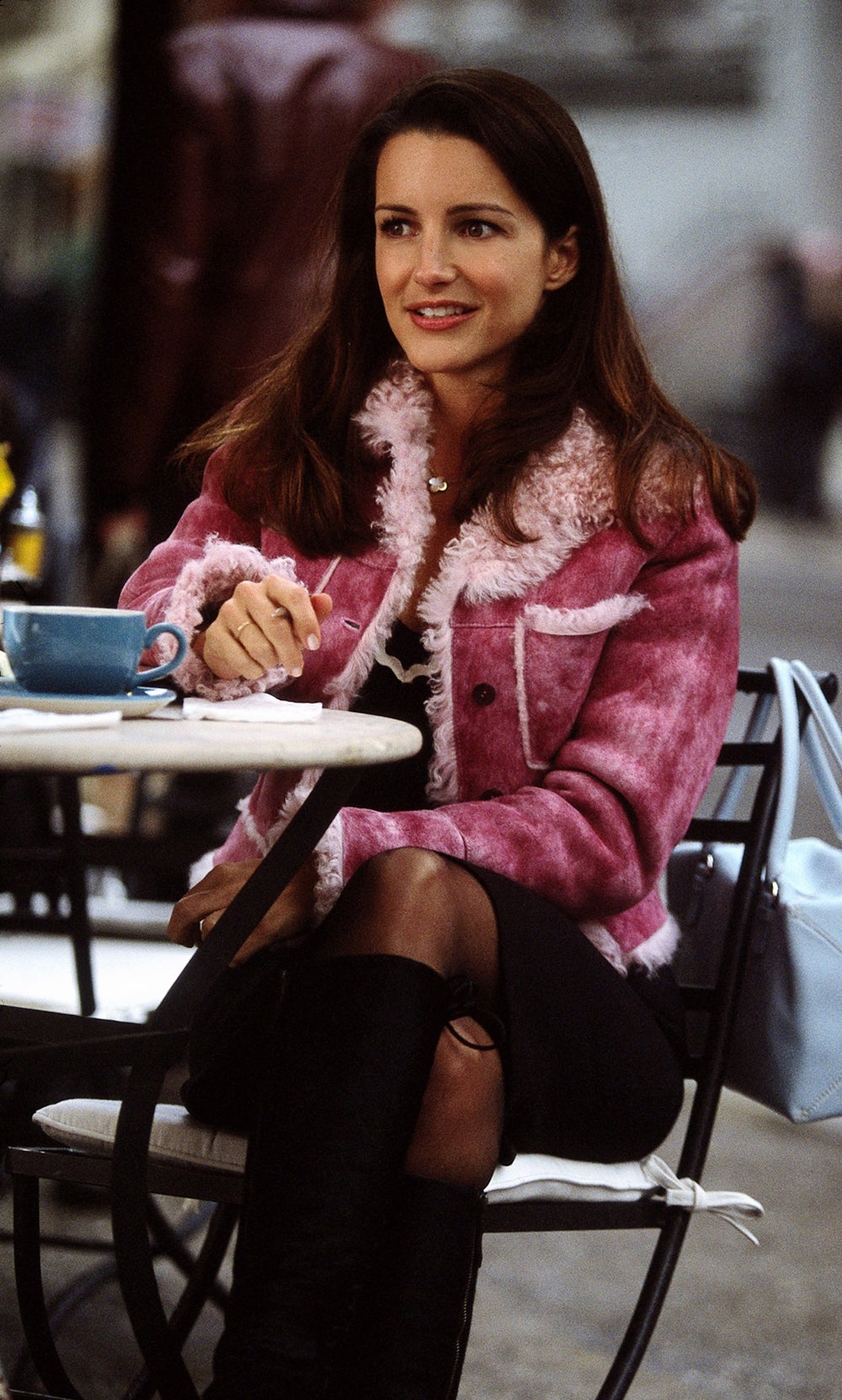Dirty talk isn’t always mortifying, but it can – and should – be better
As the sex scenes in the divisive music industry series ‘The Idol’ induce widespread cringe, Ellie Muir asks experts whether dirty talk is ever sexy, and if there are ways to actually make it fun


In the second episode of The Idol, the porny music industry hatewatch available now on Sky, we see Lily-Rose Depp’s pop star Jocelyn and her seedy cult leader boyfriend Tedros (played by The Weeknd) have kinky, mortifying sex. The scene finds the pair engaging in some mind-numbingly overdone foreplay, with Jocelyn masturbating on a bed wearing a red blindfold while Tedros crouches behind a chair and barks sexual commands at her. These include references to his “fat tongue” and his eagerness to “suffocate” her with his appendage.
Viewers spat out their tea. Tedros’ dialogue was quickly meme-ified, while GQ dubbed his and Jocelyn’s embarrassing moaning match the “worst sex scene in history”. The Weeknd’s unemotive, deadpan delivery aside – uncertainty currently surrounds whether or not it’s intentional – the scene’s script has been ridiculed far and wide. It doesn’t feel like you’re watching a prestige US drama series. Rather it’s like reading entry level sexts on a 16-year-old boy’s phone.
But while some viewers decried such dirty talk as immature, nasty or downright awful, others admitted that they’ve been personally privy to similar one-liners in the bedroom. In fact, some on social media have held their hands up and confessed that lazy or cringeworthy vocabulary in the bedroom is the norm for them.
So, why is dirty talk so hard to get right? Is it, as seen so severely in The Idol, because much of it is rooted in sexual clichés rather than the feel of the moment itself? When Tedros heaps praise on Jocelyn’s “tiny”, “little” vagina, it is based on the assumption that heterosexual sex is meant to be more pleasurable if the vagina is more narrow. But clinical sexologist Ness Cooper tells me that the dialogue is based on a myth. “Sex isn’t reliant on the tightness of a vagina, but it’s about sensations all over the body,” she tells me. “That sex scene is also forgetting that, for men, sex can be an all-over body experience and not just a penis-focused experience.”
According to a UK poll by condom brand Durex, only one in five sexually active women and one in four sexually active men find sexting comfortable, so it’s unsurprising that people might fall back on tired phrases when they’re lost for words. In a comedy sketch that recently went viral, stand-up comic Grace Campbell joked about the moment a man asked her to “come for me” during sex. Her audience roared with laughter. “Well I’m not gonna do it now then, am I?” she said in retort. Campbell had touched on something important: it can be unsexy to be put on the spot in the bedroom, or have sexual acts commanded of you by a partner.
Cooper says that it’s best to ground dirty talk in genuine emotion, rather than making blunt demands… at least at first. “Start with something that will make you feel happy, and add in the emotional element,” she explains. “And then afterwards, don’t put your partner on the spot, but ask them what they thought.”
Emphasis on the tone is sometimes more important than the wording of erotic talk
Certain words might need to be avoided, too. Remember the 2000 episode of Sex and the City in which Kristin Davis’s Charlotte was left shocked by her new boyfriend’s tendency to shout insults at her in the bedroom? “The sex was good, except… I don’t think I can say it,” Charlotte stammers over brunch with her friends the morning after. “He said ‘You f****** b****! You fucking w****’,” she cringes. She’s left confused by it, and why her lover jumped straight into offensive banter during their first sexual encounter.
Instead of relying on “tight p****” spiel or derogatory one-liners, sex therapist Georgina Vass says that it’s best to ask a partner what phrases, names, or potentially offensive terms may turn them off. “And equally important [is to] identify what would turn them on,” she adds. “Try to avoid attributing too much meaning [to] what they’re into, [or] unhelpful thinking styles like mind-reading, making assumptions, or catastrophising.”
And it might be time to entirely drop some words from the vocabulary of dirty talk, too. Cooper says that certain words like “tight” or “moist” are becoming outdated in the vocabulary of dirty talk. “Moist”, in particular, has a bad reputation even outside the sheets. “The reason why ‘moist’ is so popular on the ick factor isn’t because of the word [itself], it’s because people have made a big deal about it in society as a cringeworthy word,” she says. “So if a word has generational or societal shame [attached] to it, it usually becomes less popular.”
But Cooper says that specific words have different connotations for different people, which is why it’s advised to have a dirty talk pre-talk. “Sometimes aggressive language can be a bit tricky. I’ve had some clients who’ve found what other people class [as] very tame or soft words to be aggressive due to their upbringing – it’s personal.”

It’s not all in the language, either. If The Weeknd has taught us anything in The Idol, it’s that delivery is extremely important. Cooper thinks that the tone and intent of the scene might have been a reason why audiences had such a visceral, chastity-belt-inducing reaction to it. “Emphasis on the tone is sometimes more important than the wording of erotic talk,” Cooper explains. “Sometimes there’s confusion between abuse and sexual pleasure that is consensual, and it’s about whether there is intent to cause harm, or [if you’re saying] the same words with a pleasurable intent.” So while the wording does play a part, if Tedros had delivered his come-ons romantically, or even emotively, maybe the scene would have landed in an entirely different way.
It also has to be remembered that the sex talk in The Idol is a performance. Not only for the show’s audiences, but potentially for Tedros and Jocelyn themselves – both of them attempting to out-freak one another in a competition to decide who’s the biggest “World Class Sinner”, which is also the title of Jocelyn’s latest single. Whatever the outcome, Cooper reckons that neither character received pleasure in that particular scenario: sexually, physically or emotionally. In comparison to the sex scenes we see in shows such as Netflix’s Bridgerton or its spin-off series Queen Charlotte, which are often praised for being progressive, romantic and actually entertaining, The Idol has got a lot to learn.
As for people watching The Idol who may want to up their dirty talk game, Cooper reckons there’s a simple solution: get out of your head and stop relying on porn fantasies to fill the silences. “It can be really hard to be ourselves, but being vulnerable with your partner and actually just saying something as if it’s coming from you rather than these scripts that we’ve heard, can be a lot more powerful,” she says. “And a lot hotter.”
‘The Idol’ airs on Mondays in the UK on Sky Atlantic and is also on NOW
Join our commenting forum
Join thought-provoking conversations, follow other Independent readers and see their replies
Comments


Bookmark popover
Removed from bookmarks